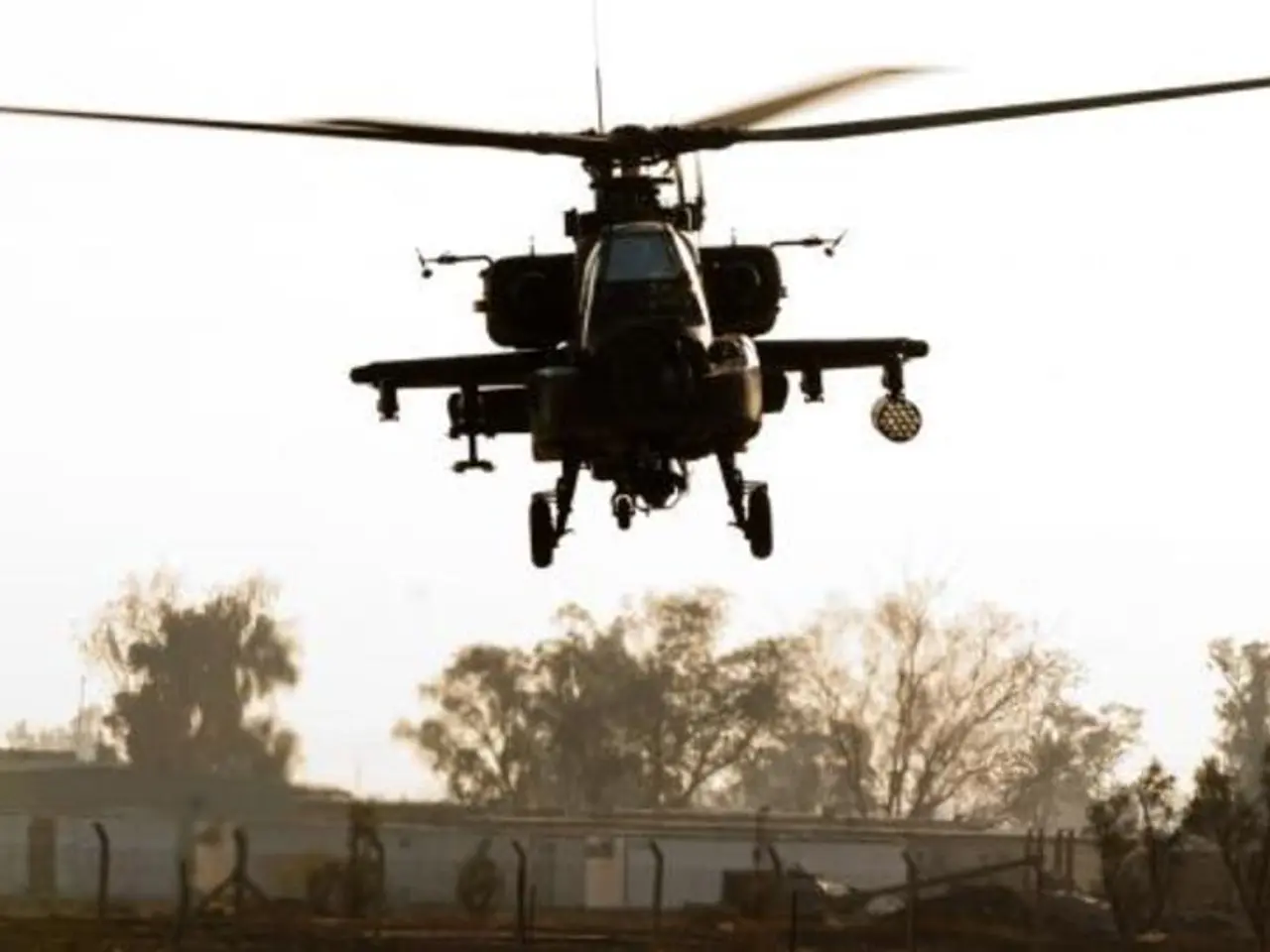"Gerbera Flowers Blossom in Lithuania"
Lithuania is enhancing its air defense capabilities in response to repeated drone incursions resembling Russian Gerbera drones from Belarus. The Baltic nation is deploying additional air defense systems, including short- and medium-range missile batteries, closer to its Belarus border, and establishing specialized air defense units there to counter drone threats.
Key measures include the deployment of a medium-range air defense battalion equipped with NASAMS batteries and multiple short-range units with MSHORAD systems, aimed at rapid and reliable engagement of aerial threats. Lithuania is also establishing acoustic drone detection systems called Sky Fortress, adapted from Ukrainian technology, which use microphone arrays to detect drones acoustically and distinguish them from other low-flying objects.
The country is accelerating the procurement of short-range radars and complementary sensors to improve drone detection and identification, as current equipment mainly detects airborne objects but does not reliably identify them. Lithuania is also increasing its use of drones within the military, including reconnaissance and combat UAVs, alongside training personnel, to enhance its unmanned aerial capabilities both defensively and offensively.
These moves are part of a broader €300 million defense investment plan and a commitment to spend up to 6% of GDP annually on defense from 2026-2030, exceeding NATO targets, reflecting the seriousness Lithuania places on countering drone and broader air threats amid regional tensions.
Recent incidents involved drones entering Lithuanian airspace, with searches underway for debris, underscoring the immediacy of the threat and Lithuania’s response urgency. A UAV similar to the Russian Gerbera flew into Lithuania's airspace from Belarus yesterday, and the potential incursion of drones over the Lithuanian capital could be considered as a military gesture, possibly retaliatory.
Coordination with the State Border Guard Service is being deepened to ensure comprehensive airspace surveillance and quicker decision-making. The scenario of launching drones is not the main one, but it is not entirely improbable, given the activity in the NATO region around the Kaliningrad area. The true identity and purpose of these drone incidents are uncertain, but the principle of "it's better to overdo it" might be applicable in this context.
The increased activity in the NATO region around the Kaliningrad region is noteworthy. Lithuania, as a neighboring NATO country, is taking proactive steps to safeguard its airspace and ensure the security of its citizens. The UAV that passed over the capital Vilnius yesterday serves as a reminder of the ongoing tension in the Baltic region.
- Given its ongoing air threats, Lithuania's political decisions have expanded to include a focus on war-and-conflicts, as evidenced by their latest investment plan to allocate €300 million towards defense, with a goal to spend 6% of their GDP annually on defense from 2026-2030, surpassing NATO targets.
- In response to repeated drone incursions and the uncertain nature of these incidents, Lithuania has intensified its general-news coverage, keeping the public informed about the situation, particularly the deployment of additional air defense systems, establishment of new detection systems like Sky Fortress, and training personnel on the use of drones for reconnaissance and combat.








